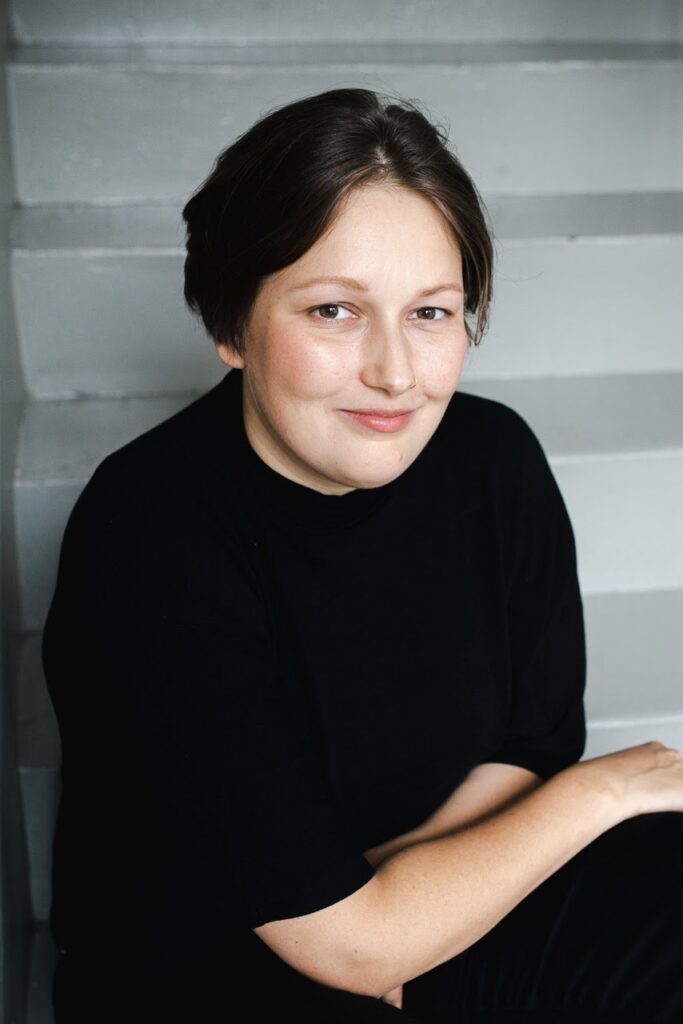CCA Temporary Gallery is not only an institution, but a network. With this new series, we want to introduce you to the people who are involved in our work and make the realization of our projects possible. To kick things off, please meet Paulina Seyfried, Coordinator for institutional accessibility and local collaborations.
Interview and editing: Nelly Gawellek
October 2023
How are you doing today? How has your day started?
Paulina Seyfried: So far, so good. I've had a stressful couple of weeks, as is often the case in the cultural month of September. I'm also just back in Cologne, full of new perspectives from my last job at the Festival Theaterformen as a production associate focusing on accessibility.
What is your job? What are you busy with right now?
PS: That's not so easy to answer. The most appropriate job description is probably cultural producer? My main job recently became co-directing the residency program at the Academy of the Arts of the World, Cologne. On the side, I do the production of independent projects such as Über Brücken, a great series of seven events on the seven city bridges in Cologne by Elena Malzew and Lisa Klosterkötter. Then I'm still involved in more research-oriented projects, like the Literarische Forum für feministische Stimmen (Literary Forum for Feminist Voices) by Insert Female Artist, directed by Svenja Reiner. I also do my own research and writing, especially on new ways of working and structural change, such as my mapping Manege der Gegenwart.
How did you get to know the Temporary Gallery?
PS: In 2018 I moved from Berlin to Düsseldorf for my master's studies and started curating my own projects. At the time, I was interested in art spaces that work differently without thinking curating in a one-dimensional way. I joined Tempo through an internship and was involved there ever since — and since last year, finally, more permanently as part of the network project Islands of Kinship.
What is your role at the Temporary Gallery? What are your tasks, what is your personal goal?
PS: My job is called "Coordinator for institutional accessibility and local collaborations." This is a self-designation in which I have tried to summarize the different focuses of my work. I'm responsible for members, but I'm also something of a "critical friend" for accessibility. For a long time I also worked in production. I am currently particularly interested in the transformation of the institution into an open place for heterogeneous constellations, among other things through greater involvement of the neighborhood or new groups of people.
What is it like for you to work for Tempo? What do you like about the job?
PS: I really like the team and the program of Temporary Gallery. Everyone is totally appreciative of each other. Aneta opens many doors and makes sure that the institution is always moving! Especially the will to change is what excites me.
What does your next project for the Temporary Gallery look like?
PS: I am currently working on a guide to the connections between language and accessibility in the cultural sector. In particular, I'm interested in how to make texts and conversations less academic or exclusive in general, rather than simply writing a parallel text in easy language.
What profession did you want to have as a child?
PS: Psychologist and band manager. In my current professional orientation between curatorial care work and production, I think I've actually come very close to that!
Is there anything else you would like the readers of this interview to know about you or anything you would like to share?
PS: Temporary Gallery is a Verein, an association. Make sure you all become members and create this special place with us. It's worth it!
